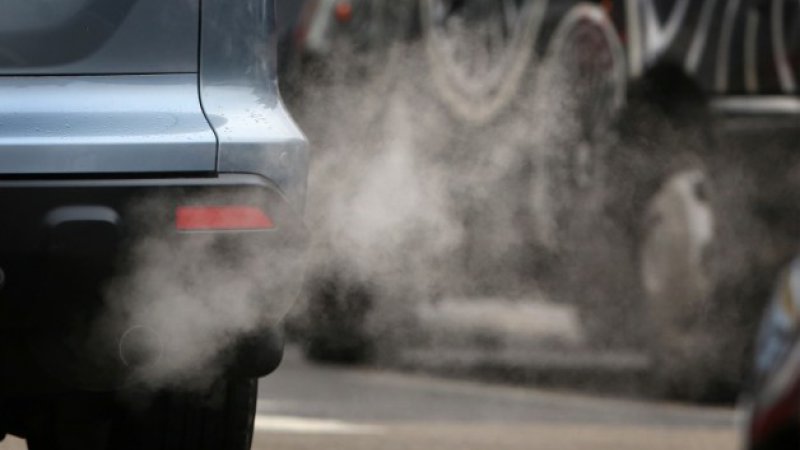After over a decade of working to advance a price on carbon in Washington, and three years working to advance a statewide clean fuel standard, WEC and our partners successfully secured both policies in 2021. This work is the culmination of building community power, electing environmental champions, and learning lessons from past efforts.
Climate Commitment Act
The Climate Commitment Act (CCA) is an economy-wide policy linked to our state emission targets to reach net zero by 2050, and will generate resources to invest in carbon emission reductions across the economy, including natural climate solutions. This is the strongest carbon pricing program in the nation with a declining cap on all polluters emitting over 25,000 metric tons of GHGs annually (and no exceptions for emission-intensive and trade-exposed industries). A key part of the policy is the racial and economic equity elements woven throughout, with direct benefits to communities most impacted by climate pollution, a strong adaptive management program, and air quality improvement and monitoring systems to reduce non-GHG pollutants that directly harm human health.
Importantly, this law will also engage Tribal Nations and representatives from overburdened communities in the overall management and leadership of the program, and will generate needed revenue to invest across the state to decarbonize our economy, build climate resiliency, and address longstanding inequities from the climate crisis. Though the Governor vetoed Section 6 of the Climate Commitment Act, which removes tribal consent language, WEC continues to be committed to ensuring this veto isn’t the last word on this issue.
Climate Commitment Act Public Hearings:
There will be four opportunities to testify and make your voice heard!
Choose a public hearing timeslot below and register to testify! *You will be redirected to an external sign up page.
We’ve prepared a public comment template with critical talking points to help you craft a strong testimony for the CCA rulemaking! Check out comment template provided here and add your personalization where necessary.

Can’t make it to a public hearing? Submit your written comment online by July 15:
Did you know that transportation fuels are responsible for nearly half of Washington’s climate pollution?
Clean Fuel Standard
Washington also passed a Low Carbon Fuel Standard, which will require fuel producers and importers to reduce climate pollution from fuels that power our transportation system, and will invest revenue into electrification and other low-carbon priorities. This policy is a critical step toward reducing emissions from transportation.
A key highlight of the law is that for electric utilities earning credits, 50% of utility revenue must be invested in transportation electrification projects, with 60% of that going to overburdened communities. This law also helps to spur the expansion of transportation electrification and creating more homegrown jobs in the production of clean, low-carbon fuels. Passage of this legislation now brings Washington state in alignment with the rest of the West Coast and enables us to benefit from the programs in California, Oregon, and British Columbia.

Frequently Asked Questions
What is a clean fuel?
A clean fuel is any fuel that emits less greenhouse gases than the gasoline and diesel we all see every day. This includes conventional ethanol, cellulosic ethanol, biodiesel, renewable diesel, electricity, and hydrogen.
What is a clean fuel standard?
A clean fuel standard shifts the fuel market in order to incentivize and make more available transportation fuels that have a lower carbon content. To do this, it sets a standard for how much carbon fuels may emit, and sets up a special market where fuel producers like oil refiners and electricity generating utilities can buy and sell credits to meet the standard.
For example, if a fuel producer sells fuels that has more carbon content than the standard allows (e.g. our current gasoline mix), they must buy credits from a clean fuel producer. In contrast, if a fuel producer sells fuels with a carbon intensity lower than the standard (e.g. clean electricity), they can sell credits on that market. Over time, the requirements around carbon content become more stringent which has the impact of lowering the overall carbon intensity of transportation fuels.
How does a CFS change the transportation system?
Putting in place a Clean Fuel Standard will recalibrate what is available to consumers and incentivizes more, cleaner fuels to be in the market. It will also promote clean transit options. The cost-per-mile to get around will go down.
What else do I need to know?
Transportation accounts for over 40% of carbon emissions in the Puget Sound region and almost half of our statewide emissions. Establishing a clean fuel standard is a proven way to reduce these emissions, as well as many of the other air pollutants that go along with transportation. The oil and gas industry will do nearly anything to stop a CFS because it ends their control of what is available at the pump and how we all get around.
Emissions from gasoline and diesel have very significant health impacts, causing asthma, lung cancer, and other dangerous respiratory diseases. These emissions hurt everyone, but they affect people close to roadways and vehicles to a much greater extent. Reducing the carbon content of fuels reduces these disproportionate impacts.
What’s Next?
The rules to guide implementation of these laws are a critical part of ensuring Washington’s climate action is just and equitable. These are complex policies with multiple, simultaneous rulemakings. Join us as we engage in these 1 – 2 year processes to turn climate action into reality!
